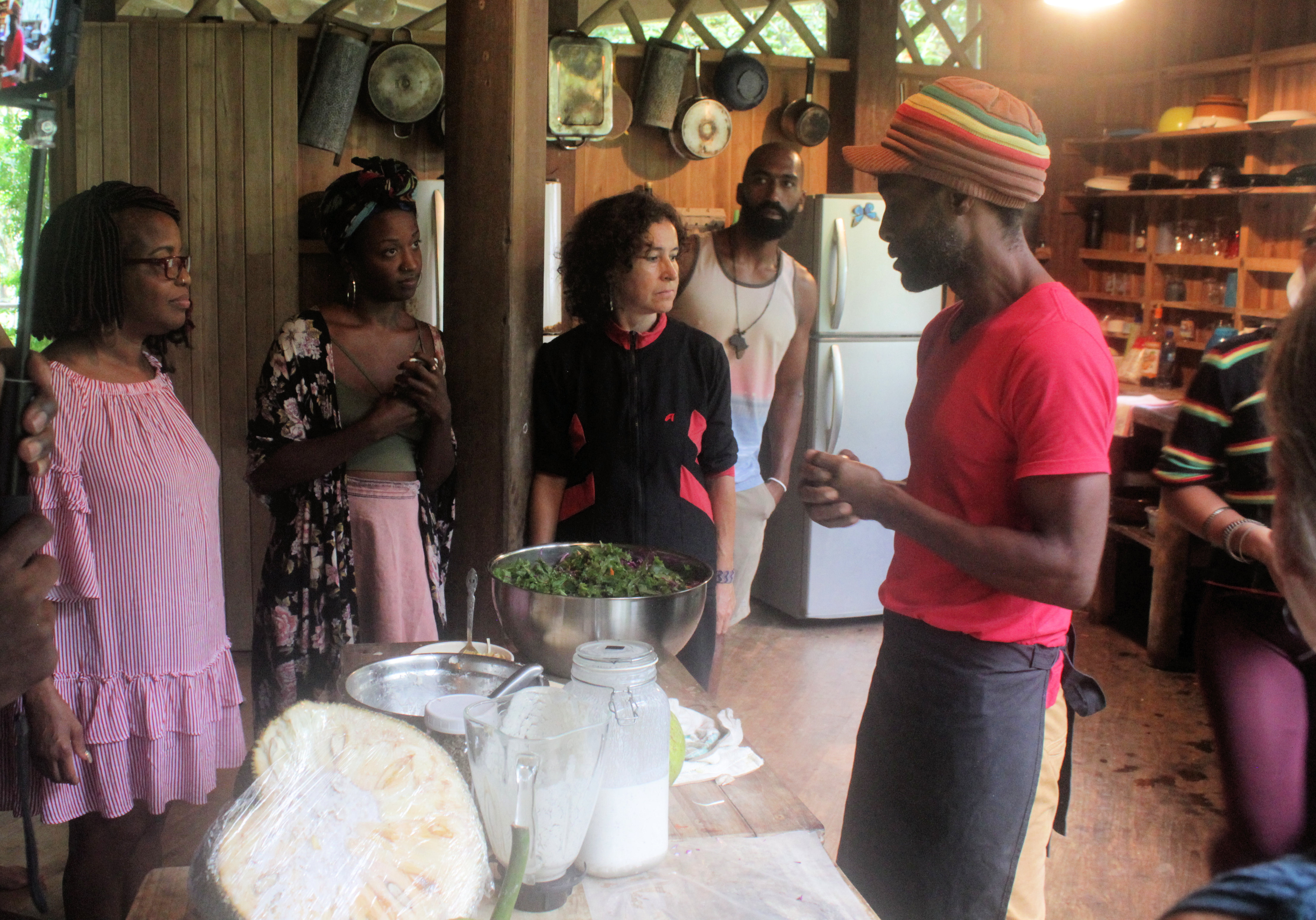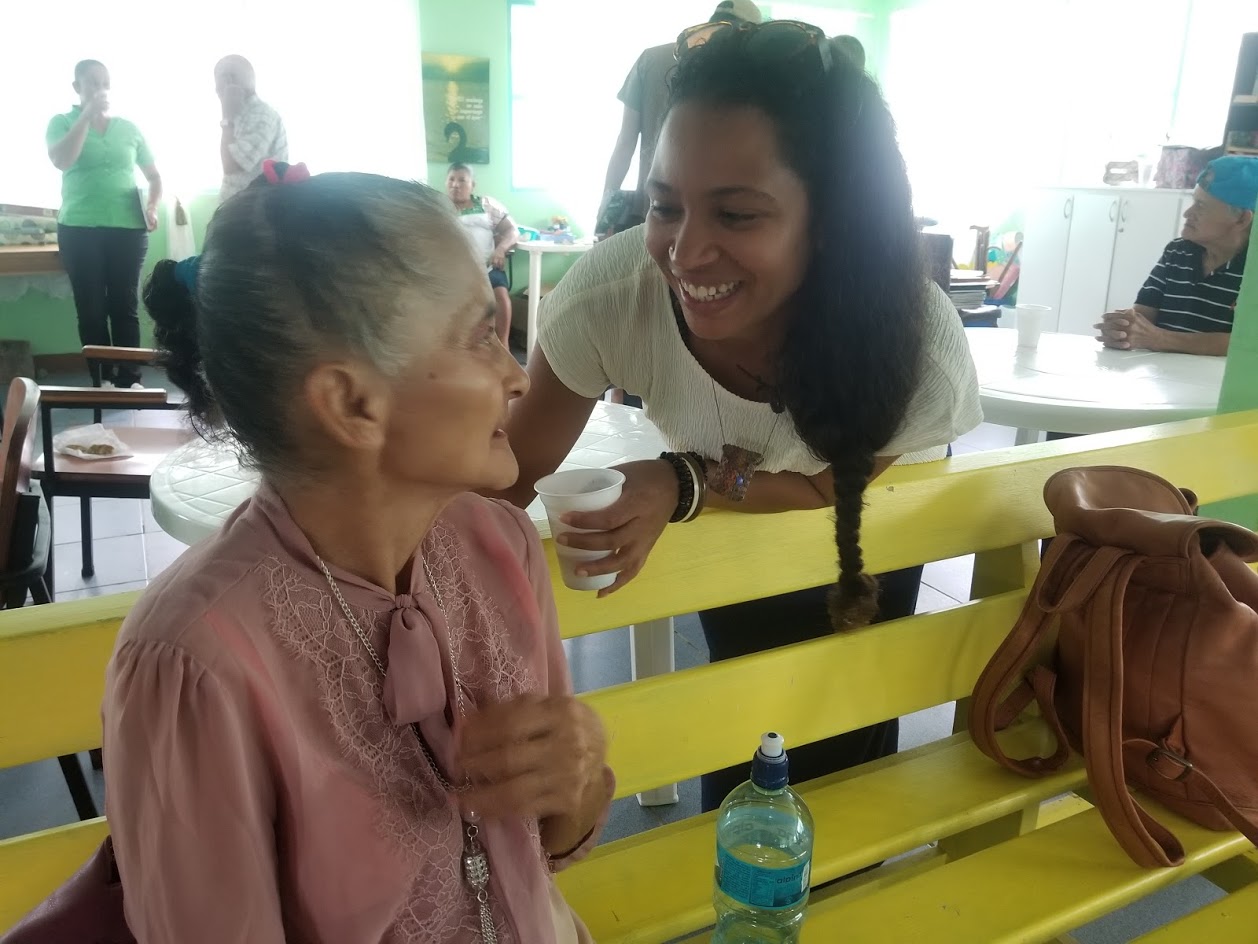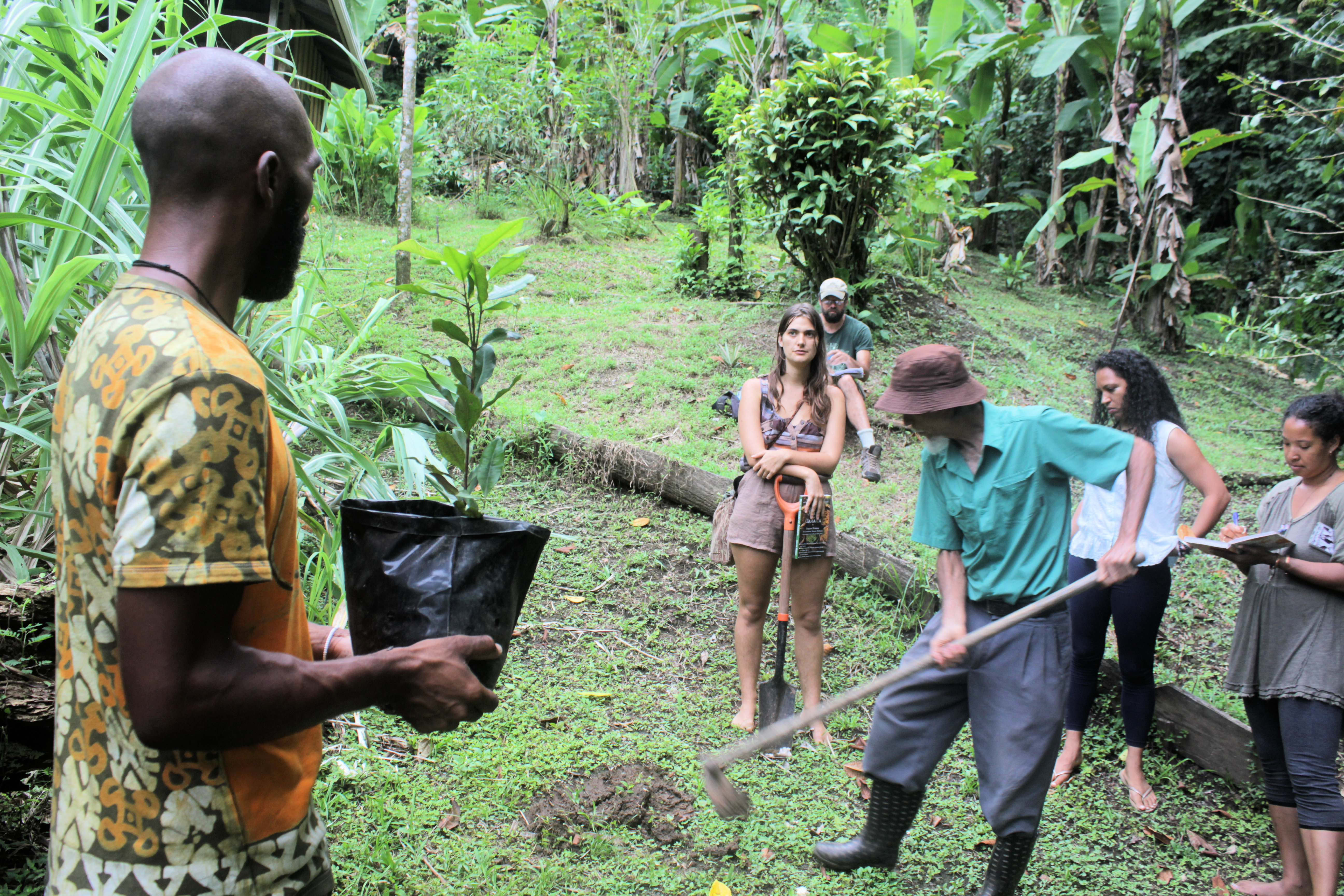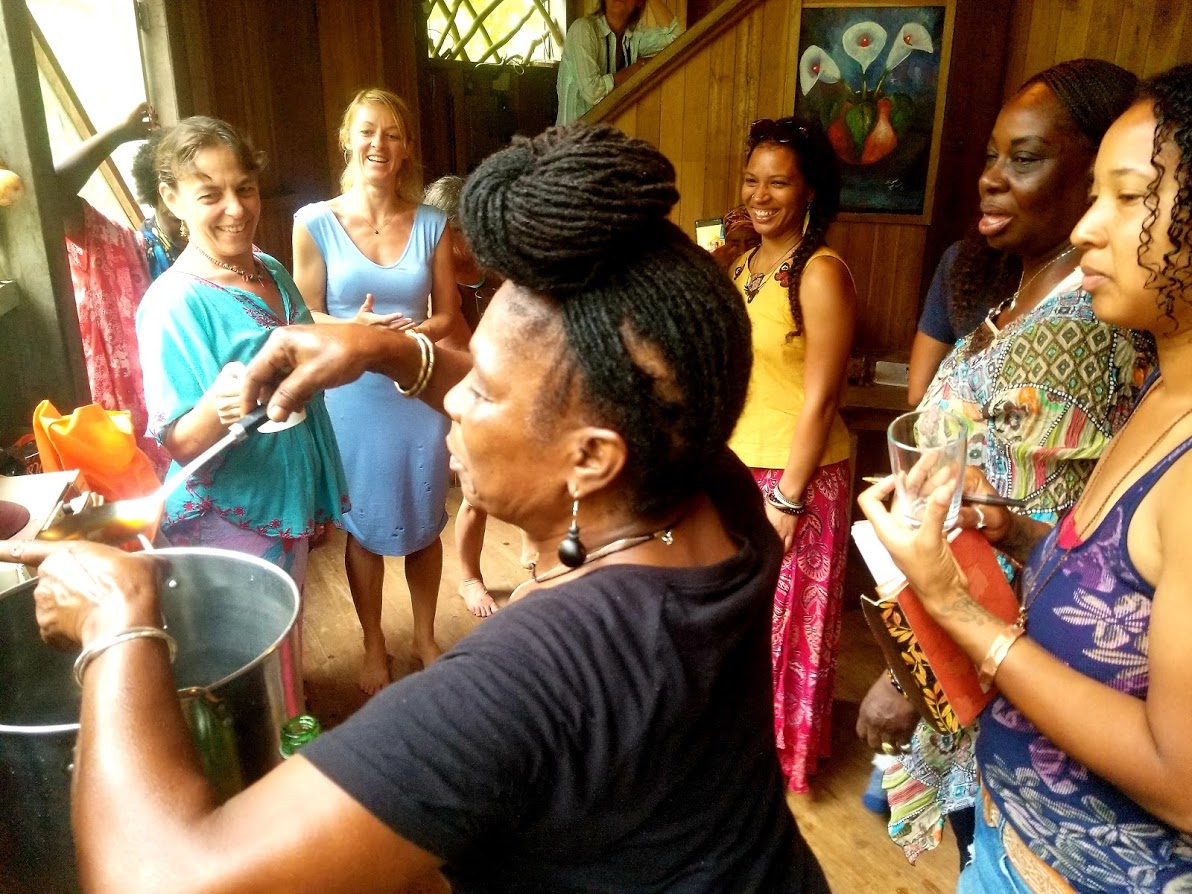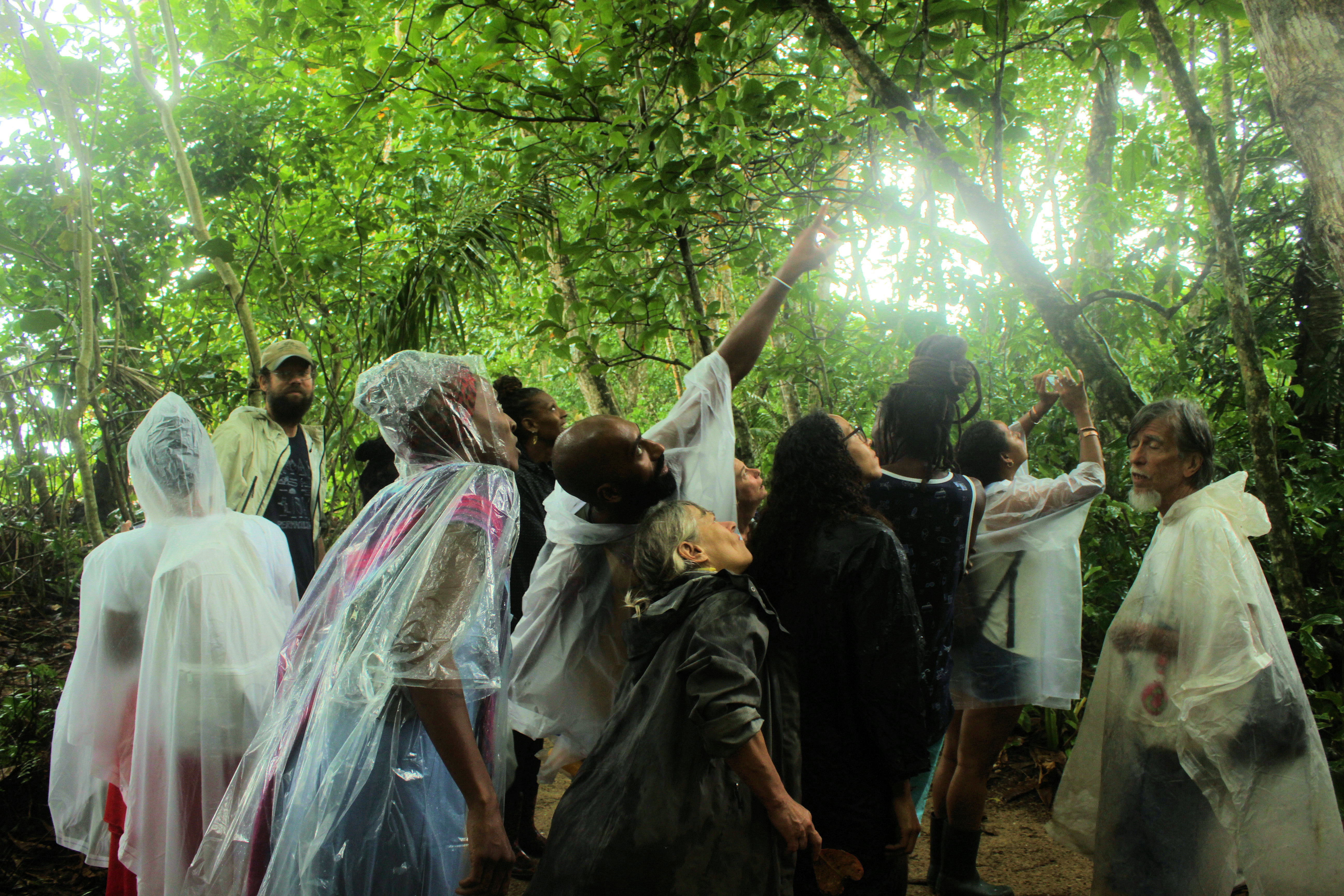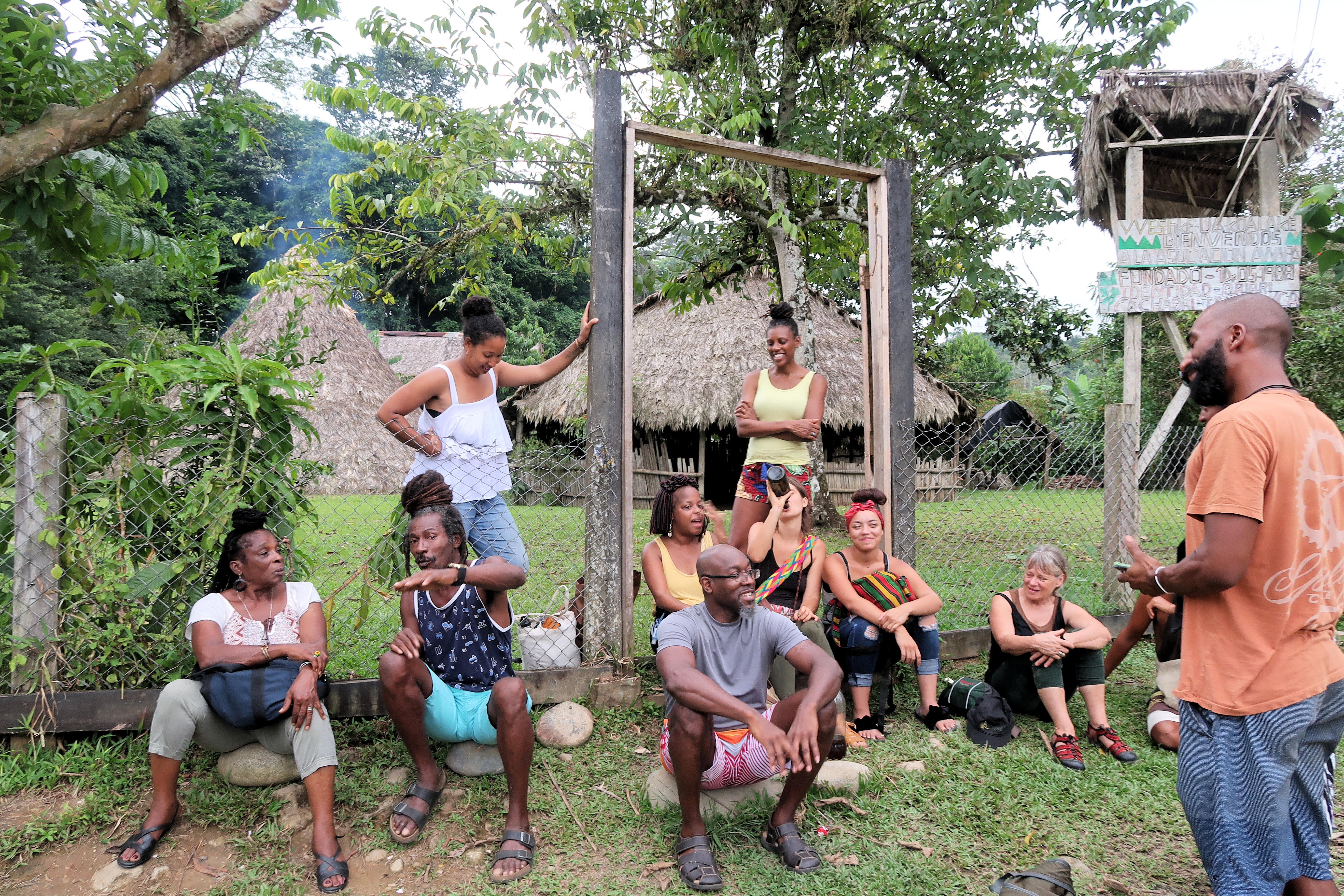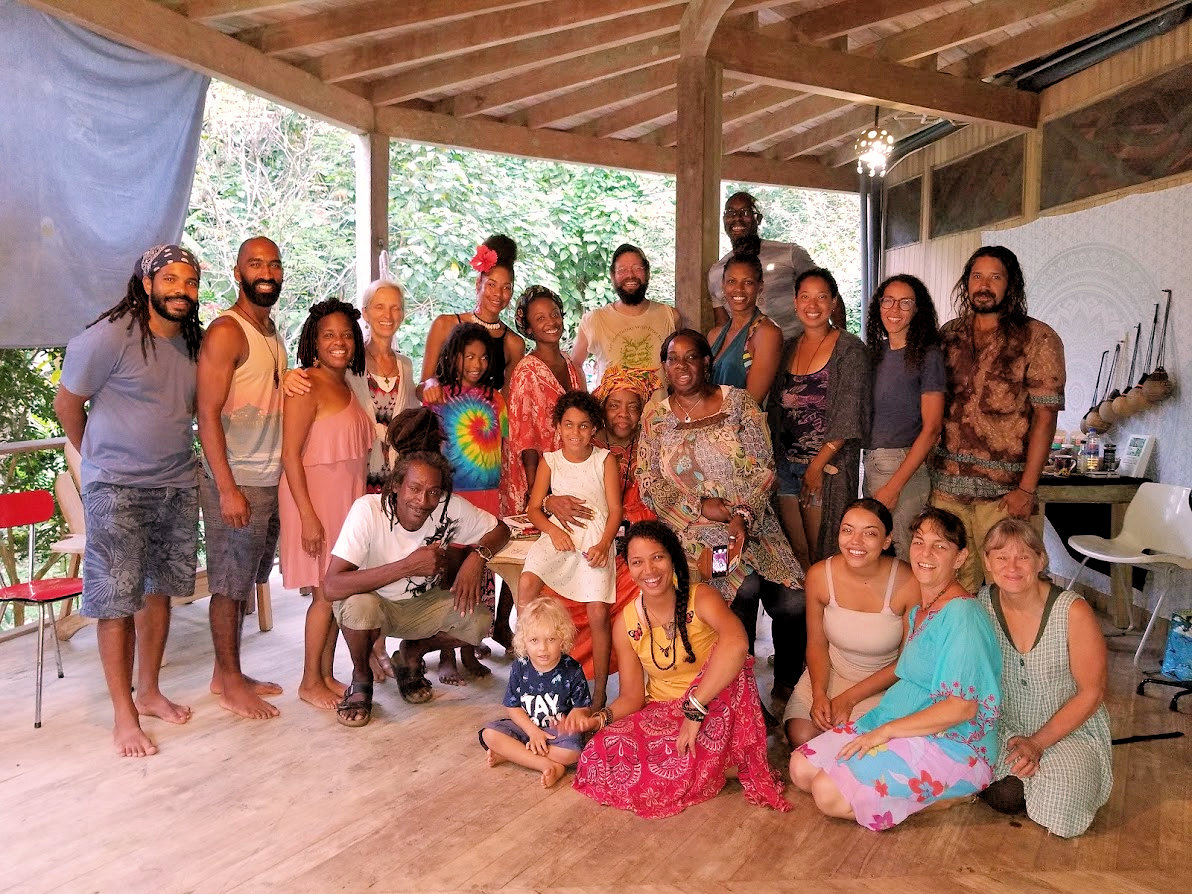Hidden Garden has created a unique Afro-botanical collection, featuring African plants used here in the Americas, and other plants which play an important role in Africana ethnobotany. Based on years of research here at the garden and the revolutionary book, In The Shadow of Slavery: Africa’s Botanical Legacy in the Atlantic World, we have a growing list of important medicinal, nutritional and spiritual plants that came from Africa over the past 500 years. These plants have been organized into a ceremonial space, using the Sacred Grove model from West Africa (see Ormsby & Egbeako ) in which plant conservation areas serve as grounds for other wellness and spiritual traditions to take place.

Afro-Botany: The interdisciplinary study and forthcoming implementation of traditional botanical strategies used by Africans and their descendants throughout the African Diaspora. Afro-botany includes ethnomedicine, history, environmental science, spirituality, trauma recovery, educational repatriation and health policy decolonization.
Mission: To provide a safe, community space to explore, experience and document the botanical and wellness knowledge of the African Diaspora, and to contribute to the survival of Afro-botany and Traditional African Medicine.
Honoring the Botanical Traditions of the African Diaspora
- Research by volunteers and staff in Afro-botany, the ethnobotany of the African Diaspora, results of which are incorporated into Hidden Garden’s online botanical database and research library.
- Seed & Plant Collection – including donations from community members, ethnobotanists and a visit to the Bri Bri Seed Exchange, which proved extremely fruitful. These seeds have been planted by volunteers and are currently under close supervision to ensure their survival.
- Networking – identifying and contacting academic experts, non-governmental and governmental organizations and community elders
- Wisdom Sharing – creating opportunities for sharing ancestral and academic information in a traditional setting which honors and includes local elders and community members
- Botanical Repatriation – offering Africana plants, ethnobotanical information and cultural practices, free of charge, to local Afro-Costa Rican residents and online
The plants listed below are either of African origin or have been integral to the survival of Africans in the Atlantic Diaspora. The list is a work in progress and features particularly those plants which can potentially grow in lowland Caribbean tropics. Those which have a number are already in our garden and the others are on our wish list (those marked with P are priority). If you or someone you know has access to these plants and/or information about the African ethnobotanical experience in the Americas, please reach out to us.
|
#
|
Patois
|
Family
|
Scientific
|
Espanol
|
English
|
Bri Bri
|
Other Names
|
Origin
|
|---|---|---|---|---|---|---|---|---|
| 14 | Shoe black | MALVACEAE | Hibiscus rosa-sinensis | Amapola | Hibiscus | |||
| 18 | Bissy | MALVACEAE | Cola acuminata | Cola | Cola Nut | Africa | ||
| 35 | Banana | MUSACEAE | Musa acuminata | Banano | Banana | Asia > Africa | ||
| 36 | Yellow Yam | D. cayenensis | ||||||
| 37 | Bitter Yam | Dioscorea dumetorum | ||||||
| 38 | African Yam | Dioscorea rotundata | Africa | |||||
| 47 | Ginger | ZINGIBERACEAE | Zingiber officinale | Jengibre | Ginger | |||
| 60 | Dasheen, Coco Yam | ARACEAE | Colocasia esculenta | Malanga | Taro | Asia > Africa | ||
| 65 | Plantain | MUSACEAE | Musa paradisiaca | Platano | Plantain | Asia > Africa | ||
| 81 | Tamrin | FABACEAE | Tamarindus indica | Tamarindo | Tamarind | Africa | ||
| 108 | Air Potato Yam | DIOSCORACEAE | Dioscorea bulbifera | Hard Yam | Africa | |||
| 128 | Cerasee | CUCURBITACEAE | Momordica charantia | Sorosi | Bitter Melon | Balsam Pear | Africa | |
| 161 | Ackee | SAPINDACEAE | Blighia sapida | Africa | ||||
| P | Black Eyed Peas | Vigna unguiculata | ||||||
| P | Cotton | Gossypium herbaceum | ||||||
| P | Finger Millet | POACEAE | Eleusine coracana | |||||
| P | Guinea Millet | POACEAE | Brachiaria deflexa | |||||
| P | Melegueta Pepper | Afromomum melegueta | Africa | |||||
| P | Oil Palm | Elaeis guineensis | ||||||
| P | Pearl Millet | POACEAE | Pennisetum glaucum | Africa | ||||
| P | Sesame | Sesamum alatum | Africa | |||||
| P | Calalou | Amaranthus spp. | Amaranto | African Spinach | Bledo | Africa | ||
| Calaloo Talamanca | PHYTOLACCACEAE | Phytolacca | Jaboncillo | Poke Root | Americas | |||
| Castor Bean | Ricinus communis | Africa | ||||||
| Gunghu Beans | Cajanus cajan | |||||||
| P 51 | Saril | MALVACEAE | Hibiscus sabdariffa | Rosa de Jamaica | Jamaican Sorrel | Africa | ||
| P 61 | Okro | MALVACEAE | Hibiscus esculentus | Cafe Chiricano | Okra | Ñanjú | Gumbo | Africa |
| S | African Eggplant | Solanum aethiopicum | Africa | |||||
| S | African Yam Bean | Sphenostylis stenocarpa | Africa | |||||
| S | Bottleneck Gourd | Lagenaria siceraria | ||||||
| S | Fingerling Potato | Plectranthus esculentus | ||||||
| S | Fluted Pumpkin | Telfairia occidentalis | ||||||
| S | Groundnut | Kerstingiella geocarpa | ||||||
| S | Hausa Potato | Solenostemon rotundifolius | ||||||
| S | Jute Mallow | Corchorus olitorious | Africa | |||||
| S | Muskmelon | Cucumis melo | Africa | |||||
| S | Piper seed | Piper guineense | ||||||
| S | Rice | Digitaria | ||||||
| S | Sorghum | Sorghum bicolor | Africa | |||||
| S | Tamarind | Africa |
Are you interested in researching Africana Ethnobotany?
Check out this list of suggested research topics. Feel free to contact us about finding a local elder, teacher or thesis advisor if you need assistance.
| Create an Afro Botanical list for your bio region. Include common names, ethnobotanical references, personal stories & your best estimate as to the correct scientific name. | ||
| Review Afro Botanical literature & media to identify primary terminology endemic to the ethnobotany and ethnomedicine of the African Diaspora | ||
| Create a social media to translate any of these research topics into formats that can enter popular culture | ||
| Review examples of public health policies or projects which integrate Africana ethnomedicine | ||
| Create an outline of Africana ethnomedicine for your region, to include all components of a holistic wellness system | ||
| Choose one bio region and compare the Indigenous Botany with the Africana Ethnobotany | ||
| Create a list of plants used for beauty throughout the African Diaspora | ||
| Create a list of plants used for spiritual connection throughout the African Diaspora or in one specific eco-region | ||
| Create a small garden at your institution which reflects the Africana Ethnobotany of the region, establishing an herbarium and ethnobotanical information sharing system for visiting elders & community members to contribute their knowledge |
Africana Ethnobotany Teachers
Our Unique Approach
- The Bush Medicine Circle is open year round at Hidden Garden. Visitors learn about Afro-Botany through our numbering system, accompanied by an online database, and a tour with one of our local herbalists. We will continue to offer onsite learning experiences to students, academics and community members.
- Natural Choices Botanica School is hosting a virtual Afro Botany Certification Program to provide a safe, academic environment for personal exploration, relationship building and advancement of this brand new field. Topics of study include Pan-Diasporic Health Terminology, Sickle Cell Anemia, International Public Health Models and African Plant Spirit Medicine.
- Hidden Garden will continue to organize the Wellness Traditions Alliance, a community initiative started with Rich Coast Project in 2015. The Afro-Botany Conference provides a networking opportunity for the policy makers, academics and allopathic doctors who are pioneering the field of hybridized and culturally-sensitive health practices.
- The Afro-Botany Conference will be held annually at Hidden Garden in August, to accompany Afro-Costa Rican Heritage Month. It is our goal to contribute the honoring of the botany and wellness strategies of African descendants in addition to other cultural pillars such as music, dance, fashion and food. Listen to a few of the speakers from our first year here, thanks to Rich Coast Project.
- Hidden Garden offers a free virtual library, with a priority in documenting the wellness traditions of Africa and the African Diaspora, and of the Americas. To find more information on the topic of Afro Botany, use the search term AFR to see what we have available.


